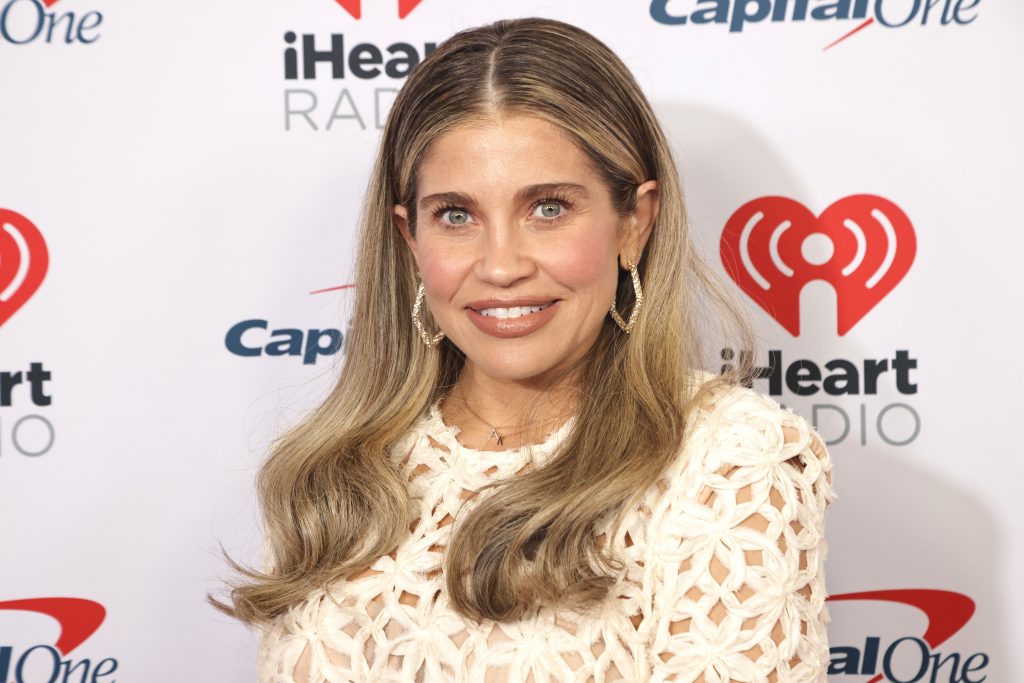Your Hair Is Part of Your Identity
- Actress Danielle Fishel, 44, from the ‘90s sitcom “Boy Meets World,” explained she wanted to cut her iconic long hair while filming, but producers pushed back. It was eventually written into a storyline, and 30 years later, she finds her cut locks preserved.
- Last year, Fishel shared that she was diagnosed with stage zero breast cancer after undergoing a routine mammogram.
- Stage zero breast cancer or ductal carcinoma in situ are abnormal cells that line the ducts in the breast. This type of cancer is non-invasive and is highly treatable if caught in its early stages.
- While Fishel plans to hold onto the hair she cut during the TV show, some cancer advocates donate their hair to patients who have lost their own during treatment.
- Hair loss usually begins about three to four weeks after chemotherapy and continues throughout treatment. Most people can expect regrowth four to six weeks after treatment.
- Hair loss is one of the most challenging stages of the cancer journey because hair is so closely tied to your identity. If losing your hair is a concern for you before cancer treatment, know you have options like wigs, hats, wraps, and scarves, among other things, to maintain your self-esteem.
- Scalp cooling devices such as the one Thurston uses constrict the blood flow to the scalp; the caps limit the amount of circulating chemotherapy that reaches the hair follicles, protecting them from some of the chemo’s damaging effects.
In a recent episode of the “Pod Meets World” podcast, Fishel recalled the surprising discovery of her signature locks—still preserved in her garage decades after they were cut during the filming of the 1996 episode “Hair Today, Goon Tomorrow.”
Read More
That struggle over control would echo years later when Fishel faced a breast cancer diagnosis. Hair, once a symbol of adolescent rebellion, took on an entirely different meaning.
As a survivor of early-stage breast cancer, Fishel’s connection to her own hair carries the weight of a journey shared by millions. Chemotherapy—a common treatment for breast cancer—often leads to hair loss, a side effect that strips away more than strands. For many, it erodes self-image, comfort, and identity.
The experience of hair loss during cancer treatment is deeply emotional. While some choose to embrace baldness as an emblem of strength, others grieve the transformation. Advocacy organizations encourage individuals with long hair to donate their locks to be crafted into wigs, providing cancer patients with a way to reconnect with their sense of self before treatment.
Hair loss from chemotherapy, while deeply emotional, is also temporary. Hair loss typically begins about three to four weeks after a woman starts chemotherapy for ovarian cancer, and will continue throughout treatment. Patients can expect regrowth to occur around four to six weeks after completing treatment.
WATCH: Help coping with hair loss while undergoing treatment.
Fishel, a mother of two, did not need chemotherapy since her cancer was caught at such an early stage.
Although the beloved actress doesn’t plan to donate the hair stored in her garage, she remains connected to the narrative of how emotionally connected hair is to an individual’s identity. Her hair care company promotes products free of harsh chemicals—a nod to wellness and empowerment.
Fishel’s story reminds us that hair is never just hair. Whether wielded as a teenage actress’s tool of defiance or quietly tucked away after surviving cancer, it holds memory, identity, and the complex emotions that come with transformation and survival.
Fishel’s Stage Zero Breast Cancer Diagnosis
“I was diagnosed with high-grade DCIS (ductal carcinoma in situ) with micro-invasion,” Fishel said on the Pod Meets World podcast, which she and co-stars Rider Strong and Will Friedle host while reliving classic episodes.
Fishel said she underwent surgery to remove the cancer and received follow-up treatment.

After her diagnosis, Fishel felt increasingly empowered to share her cancer journey.
“What I realized is the more people I talk to, the more people have had their own experiences, either themselves being diagnosed with cancer or a family member who’s been diagnosed with cancer,” Fishel said.
She is grateful her annual mammogram helped her detect the cancer before it had a chance to mature.
Fishel hopes others learning of her cancer journey follow her lead and take charge of their health.
“If it’s time for your appointment, if you’ve never had an appointment before, get in there. If you have to find out that you have cancer, find out when it’s at stage zero, if possible,” Fishel said.
WATCH: I Have Stage Zero Breast Cancer.
Stage zero breast cancer or ductal carcinoma in situ are abnormal cells that line the ducts in the breast. A normal breast comprises many ducts carrying milk to the nipple in a lactating woman. This type of breast cancer is not invasive, meaning it has not spread outside the milk duct and can’t invade other parts of the breast.
Some oncologists approach stage zero breast cancer with a watch-and-wait approach, meaning no invasive procedure happens immediately. Other oncologists may opt to perform surgery followed by possible radiation.
SurvivorNet experts say if DCIS is left untreated, it may develop into more advanced breast cancer.
Resources to Help Navigate Hair Loss During Treatment
- Living With Cancer: Coping With Hair Loss & the Anxiety it Brings
- Preventing Hair Loss During Chemotherapy: Scalp-Cooling Devices
- Making Peace With Hair Loss Stephanie Hess Shares Her Ovarian Cancer Story
- ‘Acknowledging the Grief’ – Losing Your Hair During Chemotherapy
- Coping with Hair Loss During Ovarian Cancer Treatment
Helping You Cope With Hair Loss During Treatment
Hair loss can be an emotional stage of anyone’s cancer journey. SurvivorNet has tips and resources for anyone facing this side effect and struggling to manage it.
“For cancer patients, losing one’s hair can be unbelievably stressful. To start with, the dread of losing one’s hair can lead to some sleepless nights and feelings of anxiety,” Dr. Samantha Boardman, a New York-based psychiatrist and author, told SurvivorNet.
Chemotherapy can cause hair loss. It usually begins about three to four weeks after chemotherapy and continues throughout treatment.
WATCH: Hair loss during chemo.
This happens because this treatment targets quickly dividing cells throughout the body, including cancer cells and hair cells.
Radiation is another treatment that can lead to hair loss if the hair is in the path of the tumor being treated. For example, radiation for a brain tumor may cause hair loss on the head.
“If you do lose hair, it will regrow several weeks or months after treatment,” radiation oncologist at GenesisCare, Dr. James Taylor, tells SurvivorNet.
“Fortunately, for most patients, hair loss is not a concern when having radiation therapy.”
Most patients can expect regrowth four to six weeks after treatment. However, when your hair grows back, you may notice some changes in its color and texture.
WATCH: What is a scalp-cooling device?
Cold capping (also called cryotherapy) is a Scalp-cooling device. The FDA recently approved this type of device, first for breast cancer and then for several other cancers. That means wearing cold caps or special cooling caps before, during, and after each chemotherapy treatment. The caps, which are tightly fitting and strap-on helmet-style, are filled with a gel coolant that’s chilled to between -15 and -40 degrees Fahrenheit.
Essentially, the caps “cause vasoconstriction, or a narrowing of the blood vessels bringing blood to the scalp,” Dr. Renata Urban, gynecologic oncologist at the University of Washington, explains.
By constricting the blood flow to the scalp, the caps limit the circulating chemotherapy that reaches the hair follicles, protecting them from some of the chemo’s damaging effects.
The cold also decreases the activity of the hair follicles, slowing down cell division and making the follicles less affected by the chemotherapy medicine.
If losing your hair is a concern before cancer treatment, know you have options like wigs, hats, wraps, and more.
Questions to Ask Your Doctor
If you’re going through cancer treatment and experiencing hair loss, here are some questions you may consider asking your doctor:
- Are there any treatments to help manage or minimize my hair loss?
- What are scalp-cooling devices, and how do they work?
- Do you recommend scalp-cooling devices?
- What other options are available to help me cope with hair loss?
- Can you recommend a wig maker?
- I’m struggling mentally with my hair loss; can you recommend a therapist to talk to?
- How can I find a local support group with people going through similar things?
Learn more about SurvivorNet's rigorous medical review process.

